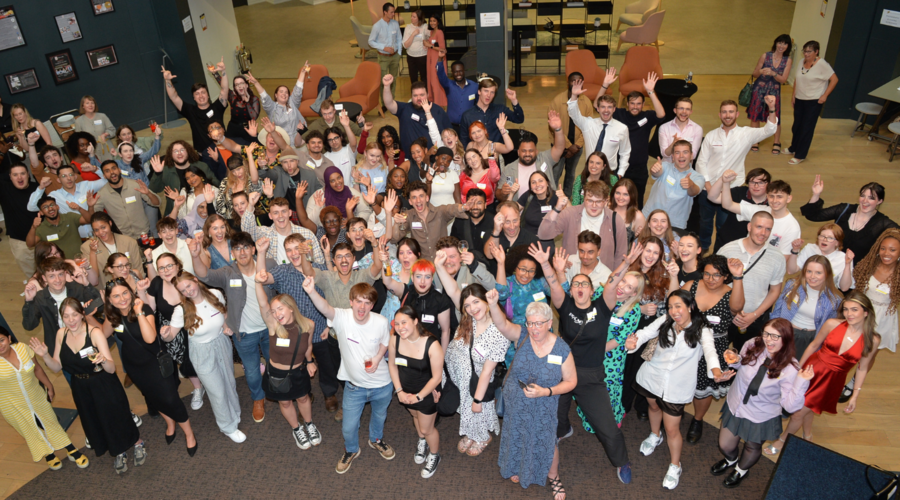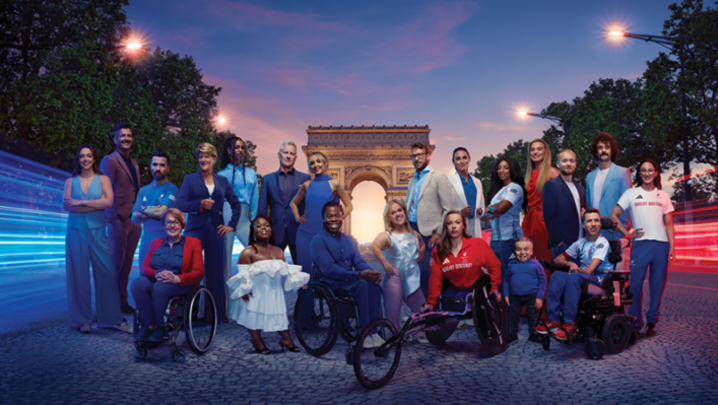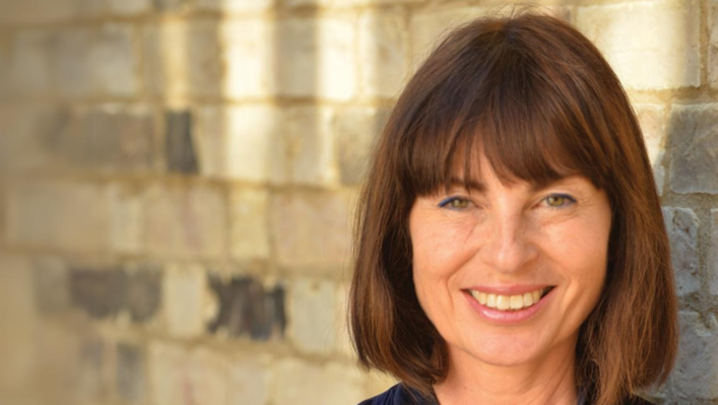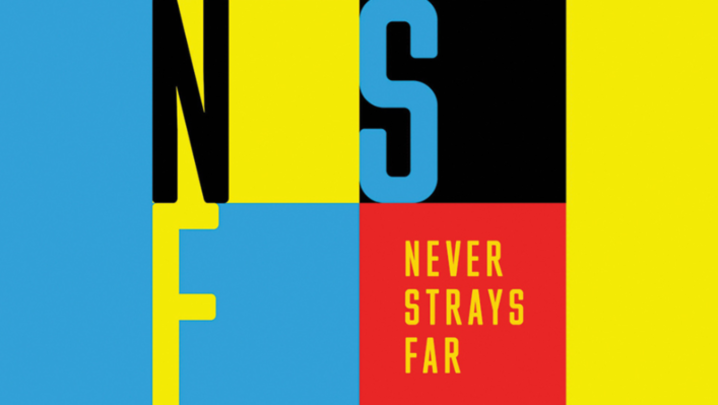A little help when you’re starting out can kickstart a career. Harrison Bennett hears how three of our young scholars fared
It has been 10 years since the Society’s Royal Patron – then HRH The Prince of Wales, now HM King Charles III – launched the RTS bursary scheme.
To celebrate, we caught up with three of the very first cohort to hear some of our scholars’ many success stories. Their career paths have led them in diverse directions, from reporting in war zones to spinning tunes on Radio 1, to making a mark in children’s TV…
Dean Massey

On the night of 23 February 2022, Dean Massey wasn’t at the Grosvenor House Hotel in London to pick up his Camera Operator of the Year award at the RTS Television Journalism Awards.
Massey was watching the ceremony from another hotel – in Kyiv, Ukraine – having been posted there by Sky News. For the former RTS Bursary Scholar, there was no time to process a remarkable full-circle moment because 23 February was also the eve of the largest armed European conflict since the Second World War.
He still remembers being woken up early the next morning by his phone ringing incessantly, and rushing out on to the hotel balcony to witness the first blows of Russia’s invasion.
Despite the wails of air-raid sirens, and the vibrations in his chest from the blasts of incoming missiles, Massey reached for his camera and captured one of the first artillery attacks on a distant apartment block. His shot ended up on newspaper websites.
It was a far cry from his first film credit: a social media advert for his local paintballing arena, which he filmed on his GoPro Hero 1. It was worth it, he says, for the £50 voucher for another game. But it also planted a seed. The RTS bursary scheme helped fund a television and video production degree at Solent University, Southampton. Not only did it buy Massey an Apple iMac along with Adobe Premiere Pro software for his studies, it also meant that when the chance arose at Sky News of a year’s work experience, he could make it to London and afford a place to stay. He shadowed camera operators for two days, “and it instantly clicked. It made me realise my passion lay within cinematography, meeting people and telling their stories.”
After winning Sky’s Mick Deane scholarship, which involved a year-long apprenticeship, he gained a full-time position at the broadcaster. “The real learning curve,” he says, “is filming on the ground. A lot of the time, you only get one chance to shoot stuff, so you have to aim for perfection on every single shot.”
One of the first high-profile stories he covered was as a pool camera operator at a royal event featuring Prince William and Prince Harry. This meant he would be distributing his footage to multiple broadcasters. “That was a lot of pressure, and I didn’t stop recording. The event was an hour and a half, and I came out with an hour and a half.”
Memory cards were fed to various news stations in real time, which meant Massey had to stand there while all of them received, and watched, every minute of his nervy footage. “There were shots of the floor and stuff as I walked around,” he cringes.
How do you learn to deal with this speed and pressure? “You adapt to the pressures and time restrictions. Working in a war zone definitely increases those pressures, but your previous experience carries you through.”
Oré Olukoga

A lot of people rely on Radio 1 and the buoyant tones of Greg James to coax them out of bed in the morning. But for Oré Olukoga, the station has always meant much more than that. “It’s the holy grail,” he says.
He started in community radio. First came Jamrock Radio in his hometown of Luton, but it was Reprezent Radio, the south London-based station, that “changed the course of my life”. It was the perfect low-stakes training ground, while still landing him high-profile interviews, including five minutes with then Mayor of London Boris Johnson. “I must have been 16 or 17. Don’t ask me what I asked him.
“Anyone and everyone in that world of black music and entertainment came through the doors of Reprezent,” he recalls. He still has emails from Stormzy, sending him music, back in 2014. Three years later, he handed over his show to none other than comedian Munya Chawawa.
Before attending university to study broadcast journalism, he secured a two-month internship at Radio 1. “I always said to myself: if I get in the building, I’ll figure out a way to pivot [to presenter].” Landing a place as an RTS Bursary Scholar helped “give me that self-belief”, he says. “It was like, no, I’m worthy of being here. I’m talented enough to be in these rooms.”
After graduating and jobs at Sony Music and RCA Records, he worked as an assistant producer for production company TBI Media. Among his clients were BBC Radio 1Xtra and the BBC Asian Network. He was back in the building.
But the next step would force him to throw caution to the wind and ignore a potential conflict of interest: submitting a demo tape to Radio 1’s Christmas Takeover in 2022. The gamble paid off. After smashing the practice runs, he was given three shows to cover. “My dad’s a cabbie, right? And he probably felt immense pride while he was driving around and telling people, ‘That’s my son on the radio.’”
He then sent an email to the PA of the Head of Radio 1, Aled Haydn Jones. In a testament to the long-term potential of networking, Haydn Jones remembered Olukoga from his first internship, eight years earlier. He said he’d make no promises, but would keep him in mind for future opportunities.
Sure enough, one came up barely a month later. Arielle Free, who did the Early Breakfast show, was presenting for Comic Relief, and they needed someone to cover her for a month.
Despite a 2.30am wake-up for a 5.00am start, during his first show he was overcome with emotion. Specifically, the handover to Greg James, whose show had long been a staple of his own morning routine.
He recalls a jaw-dropping conversation he had with Haydn Jones about Radio 1’s listenership. According to the station head, the Early Breakfast show gets an average 2.5 million listeners. “Two and a half million people have heard me talk about my lactose intolerance!” says Olukoga.
He is now a regular cover presenter for the station, and when we speak, he is weeks away from his biggest gig to date. The Lutonian will be circling back to his hometown to present Radio 1’s Big Weekend, introducing the likes of Coldplay and Raye.
It’s here that he pulls up an old tweet to show me, sent on 24 December 2012. It reads: “I’m gonna get to Radio 1 & 1Xtra one day, mark my words.”
Suzanne Pearson

Finishing school, and all the career-defining decisions that come with it, is enough to make any pupil anxious. For Suzanne Pearson, the stakes were especially high. “When you see your parents struggle financially, and the consequences of that, you realise how big a risk it is to go into less stable creative industries,” she recalls.
That was why, “for my A-levels, I did safe subjects: biology, Spanish, English and maths”. But watching Tim Burton’s Edward Scissorhands in an earlier art lesson had awakened a love for film-making, which she pursued at Saturday courses run by the BFI at Sheffield’s Showroom Workstation. “It came down to: do I go into science? Or do this rogue thing where I might never get paid a day in my life?”
Her initial plan was to dive headfirst into the industry. But when she was 17, her mother died. University offered “a good way to have a bit of stability”.
She chose to study film and TV production at the University of York. While working in a café, she took a call from Anne Dawson, then Bursaries Consultant for the RTS, who told her that she’d made the inaugural scheme. It was an emotional conversation. “It was just that I [knew I had] a safety net now,” explains Pearson.
Financially, it was not a level playing field on creative courses like hers. “It did feel like everyone had a MacBook, and I was sitting with a seven-year-old Dell that was dying.”
As well as enabling her to buy a new laptop, the bursary introduced her to other RTS scholars like her. “I realised […] there are people on the same level I can talk to now.”
Regular volunteering at Sheffield DocFest had attracted her to the “big impact” and deeper research demands of documentaries. So, after university, the RTS put her in touch with talent managers at All3Media, and she landed her first job – as a runner at Raw TV.
Soon she was losing herself in the labyrinthine corridors of Heathrow, sniffing out stories for ITV’s Britain’s Busiest Airport. Then getting her hands dirty on location for Discovery UK’s Born Mucky: Life on the Farm.
But all the travel and long, unpredictable hours proved taxing. Burnt out after a detour in development, she took the chance during the pandemic to reskill in marketing and worked for a charity in its comms and campaigns department.
Then another call with Dawson reminded her of her need for a more creative outlet. “She was like, ‘Suzanne, you still need to do something more creative.’ Then this content producer role at the BBC came up. It’s only maternity cover, so I don’t know what’s happening after that, but it’s marketing for children’s apps and games, and I really love it.”
Pearson says it’s this permanent network, and steadfast cheerleading, that sets the RTS bursary scheme apart. In other words, she says, “you get an Anne”.







